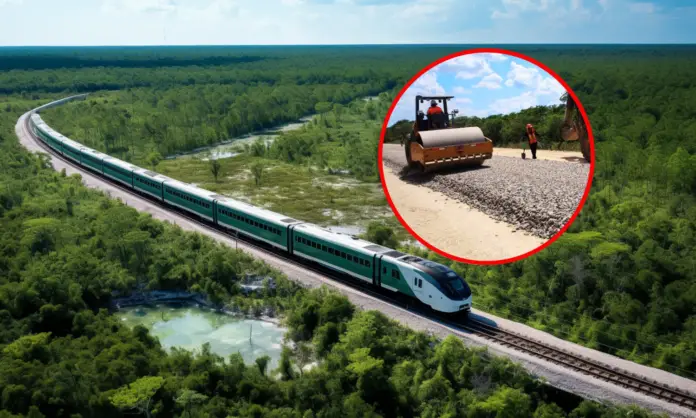The Ministry of National Defense (formerly Sedena) has faced a significant judicial setback, losing 86 million pesos in a lawsuit related to the purchase of ballast for Section 6 of the Maya Train, which connects Tulum with Chetumal in Quintana Roo.
The legal dispute began when the Mexican Army terminated a contract with Energía Solar y Proyectos de Ingeniería, citing delays in delivering the essential material needed for railway construction. Ballast is crucial for providing stability to railroad tracks.
Energía Solar y Proyectos de Ingeniería protested the termination and won the lawsuit, arguing that the contract was terminated by a military officer who lacked the authority to do so. The contract, identified with file D.G.INGS.-AIFA-T7-F5-MRA0120-CONV-PL-A-2022-C-ITP-001, was signed in October 2022 for a total of 535 million pesos, with an advance payment of 86 million pesos.
The agreement required the delivery of over 208,000 cubic meters of ballast by March and April 2023. However, heavy rain in Veracruz damaged the access bridge to the extraction mine, delaying the delivery until June.
The company filed an administrative nullity suit before the Federal Administrative Court (TFJA), citing “fortuitous case of force majeure” for the delays. The court ruled that the termination of the contract was invalid, as General Gustavo Ricardo Vallejo Suárez, commander of the Mexican Army Engineers Group, lacked the authority to make such a decision.
On January 2, the Superior Chamber of the TFJA published a final ruling against the Army, stating that it could not recover the 86 million pesos for breach of contract. The court concluded that General Vallejo did not have the necessary powers in 2019, invalidating the termination procedure.
Section 6 of the Maya Train, which runs from Tulum to Chetumal, has faced delays in completing the work. Although the passenger train is operational, the infrastructure is not fully completed. Former President Andrés Manuel López Obrador handed over the project before it was finished, and Claudia Sheinbaum managed to put over 200 kilometers of track into operation last December.
However, ticket sales for some routes are still not enabled or do not operate daily, forcing travelers to spend the night in certain cities. This section is crucial for closing the railway circuit of the project.
The ballast supply was eventually resumed, but the delays complicated the work’s delivery times. With this rule, the federation has no further legal recourse to recover the 86 million pesos, and the case is closed.
This decision highlights the challenges of complying with administrative and legal procedures in large-scale projects like the Maya Train. Efforts to complete Section 6 continue, revealing serious logistical and administrative problems.
Source: Diario de Yucatan




